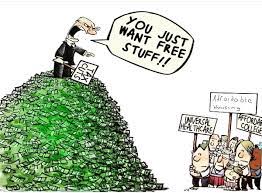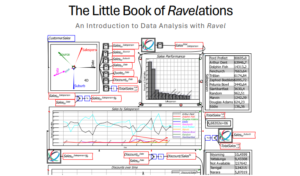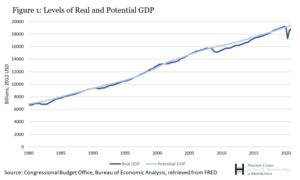Today, the phrase free market is generally used to mean free of government intervention.
Yet, many economists and students of economics claim that when Adam Smith wrote that phrase in his now-famous book The Wealth of Nations, he meant something quite different.
Table of Contents
Free market per Michael Hudson (economist)
Per Michael Hudson, Adam Smith meant keeping the market free of excessive rent-seeking.
In an interview during an episode of the podcast Guns and Butter, Michael Hudson spoke of a book he wrote titled J is for Junk Economics.
In which he makes the claims that when Adam Smith wrote his famous book:
The word rent described unearned income, income received because you own something.
Rent was paid for the use of land, interest was paid to people who owned bonds, dividends were paid to people who owned stocks.
People who sought out rent, were called rent seekers.
Unearned income was not (and still is not) the result of production, and Adam Smith and his contemporaries considered them to be a form of parasitic economic activity, because…
It was understood that rents do not add value to an economy, they extract it.
As rent-seeking was considered to be economically parasitic, it was important the market be kept free of excessive rent-seeking.
Free market per Karl Popper (philosopher)
While I found this in the Wikipedia article free market I’m using it for two reasons: 1) It’s very good, and 2) They provide a footnote citation (which I copied below).
For classical economists such as Adam Smith, the term free market does not necessarily refer to a market free from government interference, but rather free from all forms of economic privilege, monopolies and artificial scarcities.
Popper, Karl (1994). The Open Society and Its Enemies. Routledge Classics
So here, the meaning is “free from all forms of economic privilege, monopolies and artificial scarcities”, which while not exactly the same as free of excessive rent-seeking, is certainly not in line with the modern libertarian view.
Free market per Jesse Norman (British Conservative Party MP)
Jesse Norman is a British Conservative Member of Parliament (MP). He was the Financial Secretary of the Treasury from 2019 to 2021 and since 2010 the MP for Hereford and South Herefordshire.
He has a degree in Classics (I’m not even sure what that means), and a master’s degree and Ph.D. in philosophy.
He is also the author of the book Adam Smith: Father of Economics.
In an interview with William Watts, the senior markets writer at MarketWatch, Norman claimed that:
But it doesn’t follow from there that he was someone who felt that markets should have no regulation at all. And that’s important because when you look today at many markets, it becomes clear that a purely laissez faire view, a purely hands-off, let-the-market-do-its-thing view, isn’t going to work.
Watts, William. Busting myths about Adam Smith, free markets and the invisible hand 20 Sep 2018 https://www.marketwatch.com/story/busting-myths-about-adam-smith-free-markets-and-the-invisible-hand-2018-09-18
When did this meaning change? And why?
Per Michael Hudson, in the interview linked to above, he claims the common usage of the phrase changed shortly after WW1.
It was changed to mean markets should be free of”government intervention or government regulation.
Michael Hudson makes the claim that this was a 180-degree change in the meaning of the phrase, and it was intentional.
Some people put some effort into changing the common usage from freedom FROM rent-seeking, to freedom FOR rent-seeking.
This was done (as you might guess) by people (mostly bankers) intending to pursue and profit from rent-seeking activities.
Are markets free from government intervention real?
The answer appears to be no.
The Heritage Foundation published an index of economic freedom where the nations of the world are ranked as to how economically free they are.
They rank only five nations as free, which per their standards means their economic freedom screen is 80 or higher (100 being the highest score).
So, per the Heritage Foundation, the most economically free nations on earth in 2021 were: Singapore, New Zealand, Australia, Switzerland, and Ireland.
None of which could ever be confused with economies with minimal government intervention.
The mostly free countries (whose scores are in the range of 70 to 79.9) include Taiwan, the UK, Canada, Denmark, Iceland, Netherlands, Finland, Chile, Sweden, South Korea, Israel, Norway, Germany, Qatar, and Belgium, as well as several countries in Central Asia.
So clearly, per the Heritage Foundation, economic freedom and lack of government intervention are not related.
These markets that are free of government intervention are mythological in nature, in the same way, that the lost city of Atlantis is. They both exist in our imaginations but have not been found in the real world.



